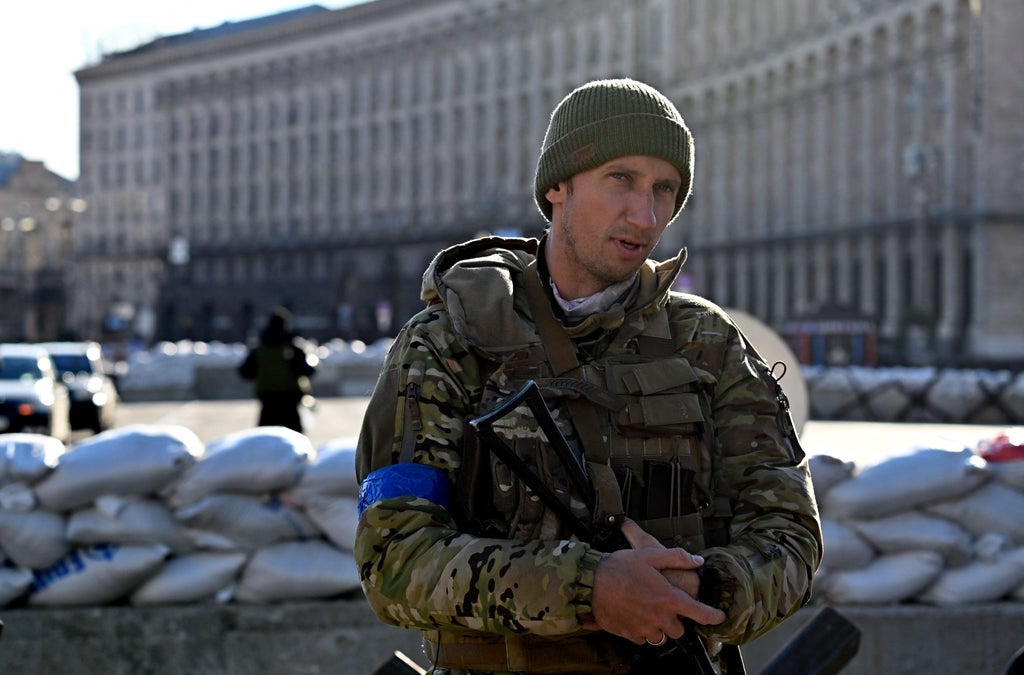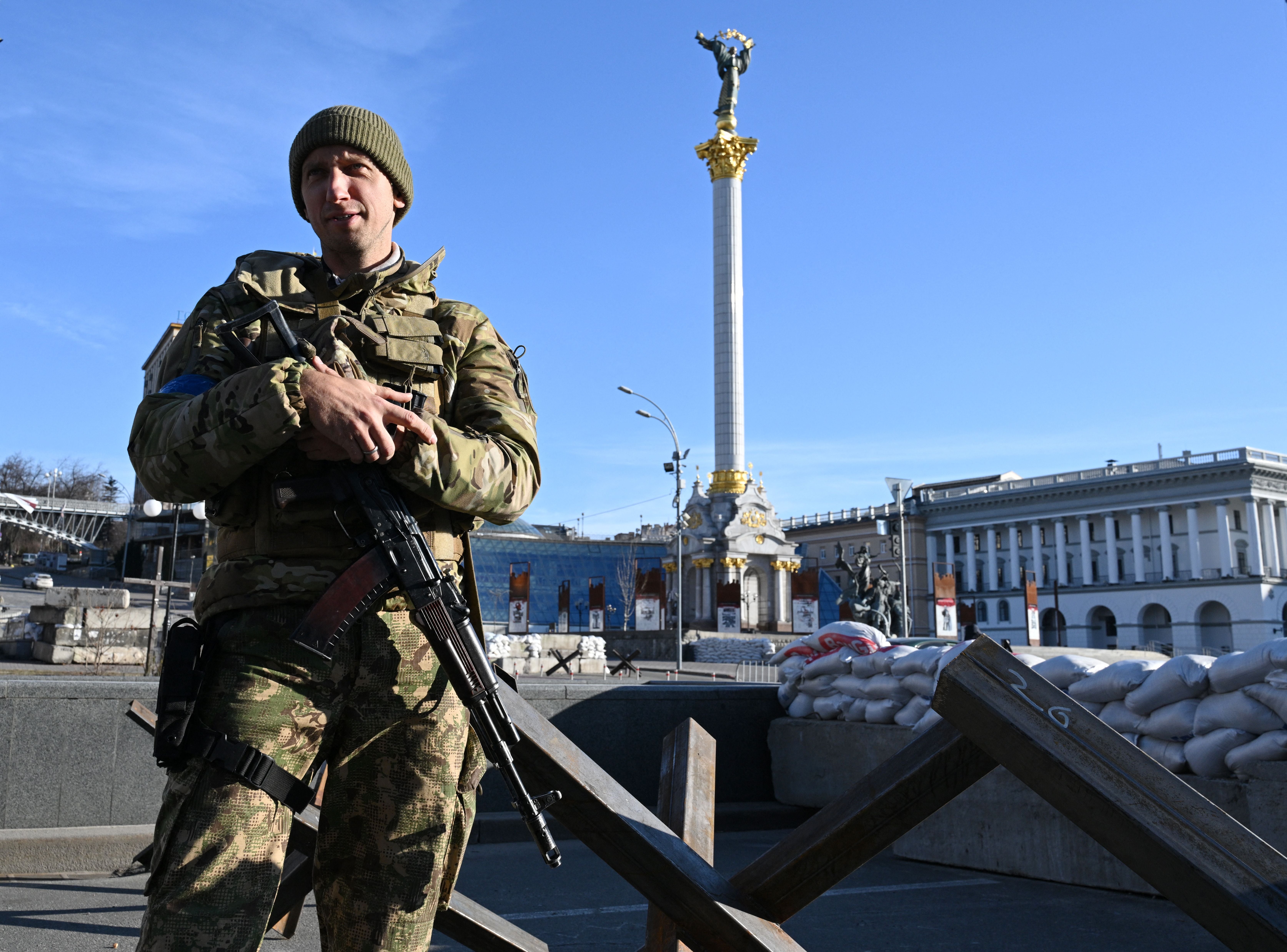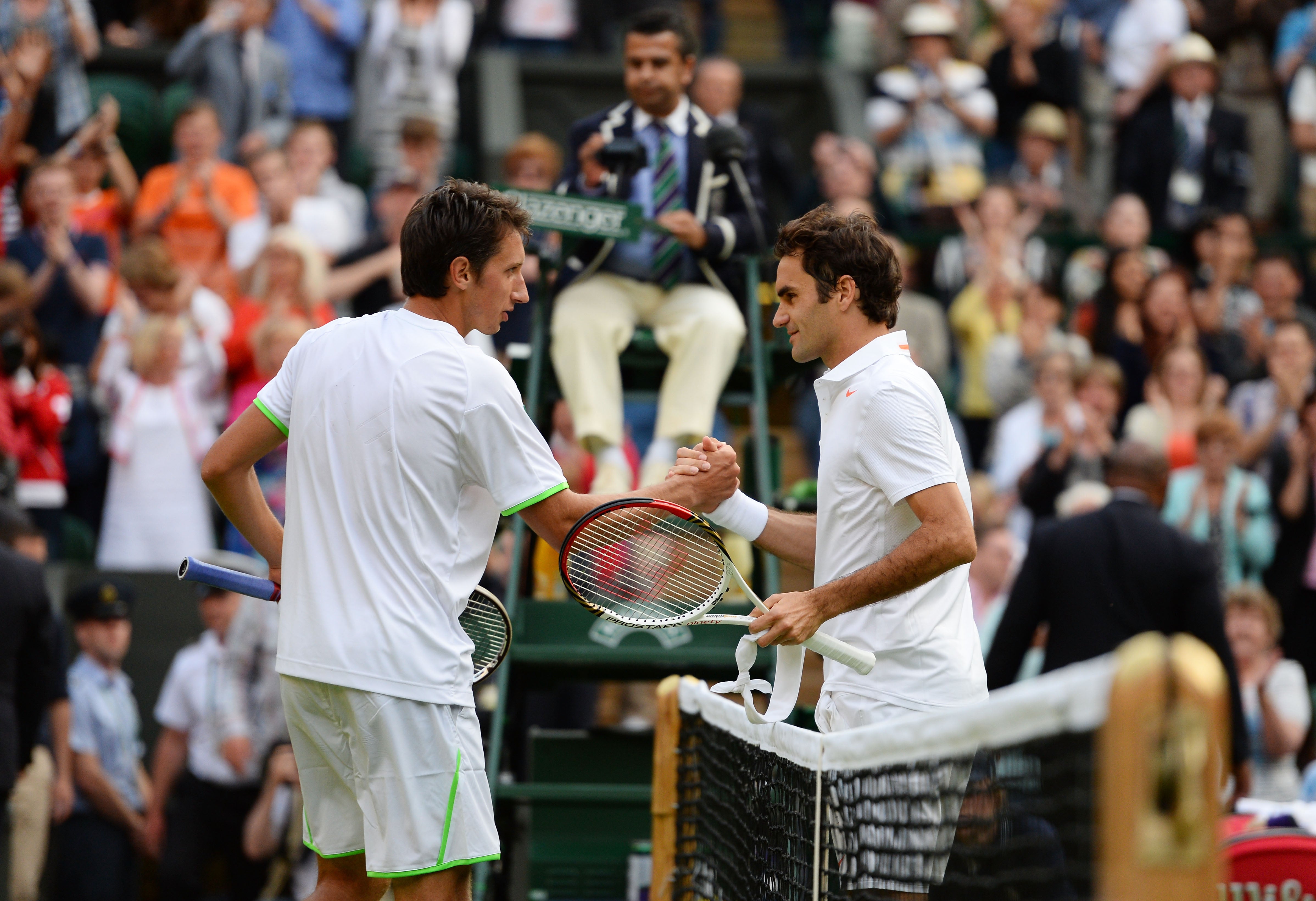
Sergiy Stakhovsky, the former Ukraine tennis star, has explained why he did not think twice about joining the Ukraine army and moving to the front line in Kyiv following Russia’s invasion of his homeland.
Stakhovsky, who famously knocked out Roger Federer at Wimbledon when ranked 116th in the world, retired from the sport in January after the Australian Open but any plans the 36-year-old had for his post-tennis career were put on hold following the Vladimir Putin-backed invasion of Ukraine.
After making a tearful goodbye to his wife and three children, Stakhovsky returned to Ukraine from his home in Hungary to join the military effort against the Russian troops and has been stationed in Kyiv as Putin’s army march on the Ukraine capital.
“Having three kids, with my wife worrying daily, it’s hard to justify being here,” Stakhovsky told The Times. “You don’t know when a missile could fly into any building. It’s roulette. But she understands why and that I couldn’t do it any other way.
“Talk to family and you think you should be with them. But if I was with them I would also feel I should be in Ukraine.”
Other sports stars, such as boxing world champions Oleksandr Usyk and Vasiliy Lomachenko, have also joined the war effort against Russia, which has seen hundreds of casualties as well as the destructions of cities and millions having to flee their homes.
Stakhovsky told the Associated Press: “I don’t have the words to describe it. I would never imagine in my life that it would come to this, that I would be in my home city... with a gun in my hands.”

Putin has been accused of war crimes after the bombing of Kyiv and the Ukrainian city of Mariupol, where Russian air strikes allegedly targeted an art school providing shelter to hundreds of civilians.
“The atrocities they [Russia] commit on a daily basis,” Stakhovsky said to The Times. “They use tactics which are to kill, not kill, slaughter, as many people as they can because we can’t call it otherwise.
“When they bombard Mariupol with civilians in it, Kharkiv, it is the same thing. So it’s not a war, it’s a slaughterhouse where they try to spread fear and destruction. But seeing Ukraine, how people are motivated to fight, it’s also inspirational.
“We can see that Russia expected to sweep Ukraine in two days. Now we are on day 22 and they are nowhere near sweeping anything. On the ground, [Russian] morale is disastrous. Ukraine forces are like a small needle piercing them straight in the heart.”

Stakhovsky has also described the conversion he had with his young children after leaving his family to go back to Ukraine. Stakhovsky’s daughter turns eight later this month while he has two sons, aged six and four.
“They’re fairly young and I just don’t believe they would understand the meaning of war,” Stakhovsky explained. “And I don’t believe they would understand any of it. My wife knew ... but she never asked the direct question, and I never told her directly. So when ... I told her ‘I’m leaving,’ she started crying. So there was not really a conversation.
“It’s tough to call with kids, because every time they ask, ‘When are you coming?’ or ‘What are you doing?’ I’m just, ‘I don’t know, honestly.’ For me, it’s not a right decision to be here and it was not the right decision to stay home. Any of this is not right.
“But I am here because I believe that the future of my country and the future of my kids, and the future of Europe as we know it. It is under great danger. And if there’s anything I can do to change the outcome, I will try to do it.”







